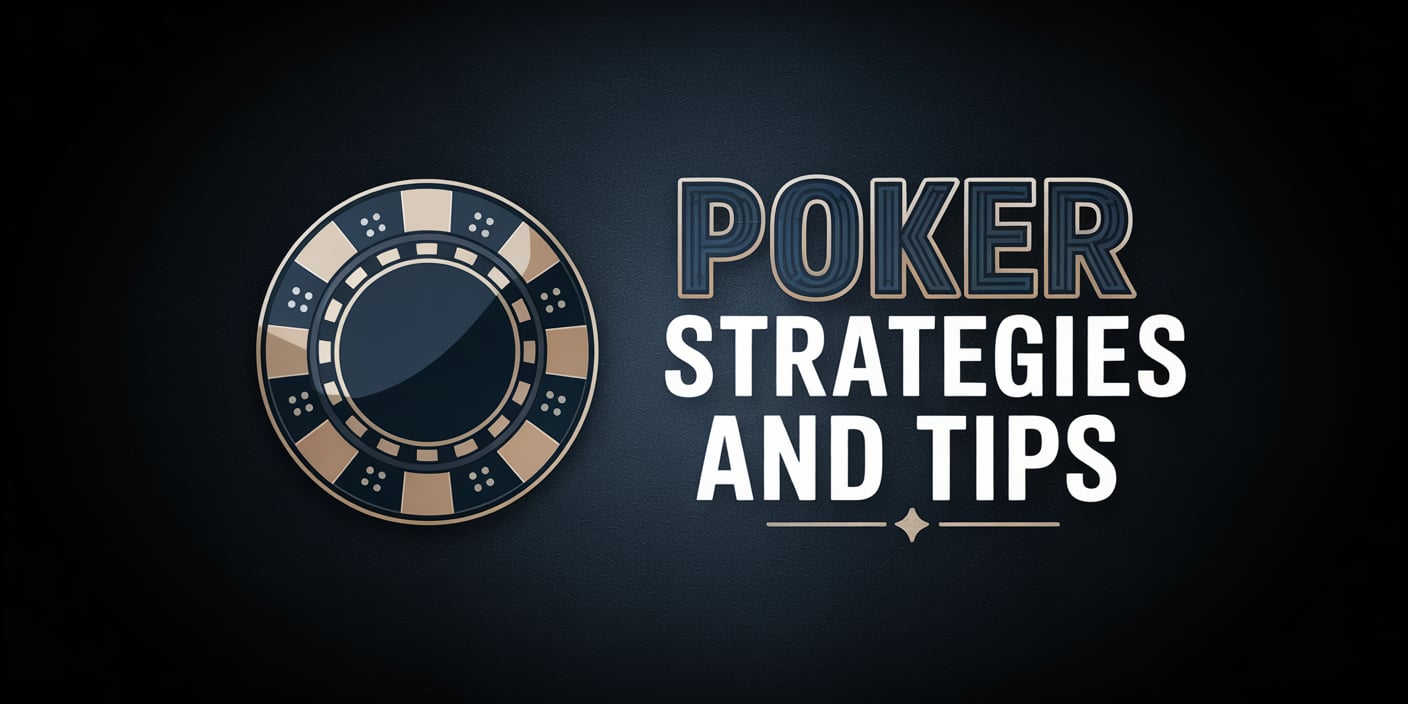Poker Strategies and Tips

They say that learning to play poker is easy, yet it is difficult to master. On this page, you will find various tips that will render you a winner at the game, from general tips and helpful information for starters to more advanced concepts worth learning once you have become proficient in the art of poker. If you prefer to play online, there are many poker casino sites that are great places for practice and honing your skills.
Tips on Basic Poker Strategy
Tip 1: Decisions a Beginner Poker Player Makes
Poker can be played seriously or for fun (or both). Either way, to play at a high level on a consistent basis takes effort and time. That is, you need to work at it. There is no harm in playing poker for fun, but there is no need to go about it and lose even if you are playing for fun. But if you have a clear conception of what kind of poker player you are before, then it will be easier for you to make decisions, and your gaming session will be more smooth.
Tip 2: Learn the Language and Phrases
Indeed, there are a great deal of specific terms in poker. To not be lost on the table, you need to know significant words.
Start with browsing a dictionary of poker. Poker contains many jargon terms, but for some games, you will realize quickly the poker player slang and understand the case when they're used.
Tip 3: Make the Right Decisions, and the Results Will Follow
Even the best poker players lose games from time to time. Therefore, winning every hand is not realistic. You need to target playing the best you can in each session of the game. If you manage that, sharpening your skills, the wins and cards will come on their own.
Most players incorrectly diagnose their poker game by the outcomes of individual games. Your objective should be making the best choices. The closer you are towards this, the better your performance will be.
Tip 4: Mathematics of Poker
Poker is a game of mathematics, and it is an incomplete information game. This can sound complicated, but really it isn't. From the beginning, winning poker starts with choosing your starting hand. If you enter the pot with a stronger hand more often than your opponents, you'll win more often.
Tip 5: It's Not Just About Starting Hands.
Picking your first hand is significant, but it's just half the game called "Poker." Having the foundation of starting hands covered and an understanding of how your table position affects them, learn to control the latter phases of the hand. What sets pros apart from amateurs is performing much better than your opponents during the latter parts of a hand, after you've already committed to starting hand choices.
This is especially true for end-of-hand decisions. These are abilities like pot odds calculation, recognition of other people's betting habits, bluffing, and position. Years of experience required to master the game in the middle and late portions of a hand will be rewarded since a minimal change in poker abilities can make a mammoth difference in your total winnings over your lifetime as a poker player.
Tip 6: Avoid Tilt
Another important skill for any poker player who wants to become successful is handling "tilt." Your opponents will try to make you play off your emotions, but only if you allow them to. Emotional play produces bad choices and money loss. Anybody can go tilt and get angry, and sometimes the only cure for this is stepping away from the game. Don't worry, the game won't go anywhere in those 10 minutes. Also, the game can be postponed to tomorrow.
Other Aspects of Poker Strategy
Tip 1: Study Different Playing Styles
One of the things that make poker so fascinating is the variety of approaches, styles, and playing techniques. The majority of playing styles can be divided into the following categories:
- Tight: A conservative style, in which you play comparatively few hands and attempt to avoid risks.
- Loose: The reverse of a tight style. You play lots of hands and are more inclined to take risks.
- Aggressive: A style that is characterized by much betting, raising the pot, and applying pressure to your opponents.
Passive: As opposed to an aggressive style. You call more often than you bet and have a tendency to respond to what other players are doing rather than do something yourself.
Think about where you fit in. Does your table play resemble one of the styles mentioned above?
If you replied "all and none," well done. Having the ability to "shift gears" and change your style at the poker table is something that you can certainly use to your advantage because playing in a monolithic style will make you predictable. However, we recommend that beginners play a tight-aggressive style.
This way, you will become more and more comfortable playing aggressive bets, which is very important to be successful in the long term. Simultaneously, you will attempt to play with strong hands, and this will enable you to practice self-discipline and to get out of many unwanted situations, which can occur while playing medium-strength hands. Once you have experience and good play, you'll play looser and more variably but remain aggressive.
Tip 2: The Significance of Position
A player in the "dealer" or "button" position typically acts last in the betting round. This provides them with a great tactical advantage since they already know what their opponents have done. The dealer position shifts after every hand, so every player gets this advantage at regular intervals to maintain fairness.
In order to apply this strategic advantage to your advantage, it is logical to play more hands from "late" position (when the majority of players have already made a decision) than from "early" position. Playing in late position, solid players tend to widen their initial hand range, because late position provides additional flexibility and options in the game.
If you have moved in front of someone else, you are "in position" to that person, and the player who moved ahead of you is "out of position." This is a very powerful advantage.
Tip 3: A Bluff Must Be Persuasive
Choosing the correct initial hands is crucial, but it is also beneficial to know that the more players participating in the hand, the higher the probability that some player will possess a good hand. There are times when an accurate bluff will steal the pot, which would otherwise be lost.
What is a bluffer attempting to accomplish? Get the opponent to fold a stronger hand. That is all. Mostly, you are going to receive weak hands that must be folded prior to the flop or mid-strength hands that there is no reason to put a lot of chips into. A bluff in these cases will give you a second chance to win.
A bluff that works is one that makes your opponent believe that your hand is superior to theirs, so ensure that you have some sense of how your actions appear from the outside. How would you play if you did have the cards you want to bluff your opponent? Are your actions reasonable and consistent?
When you do decide to bluff, play out the entire hand and make sure your "story" will stand up. If you're betting only because it's your last chance to win the pot, an astute player will read you like a book.
